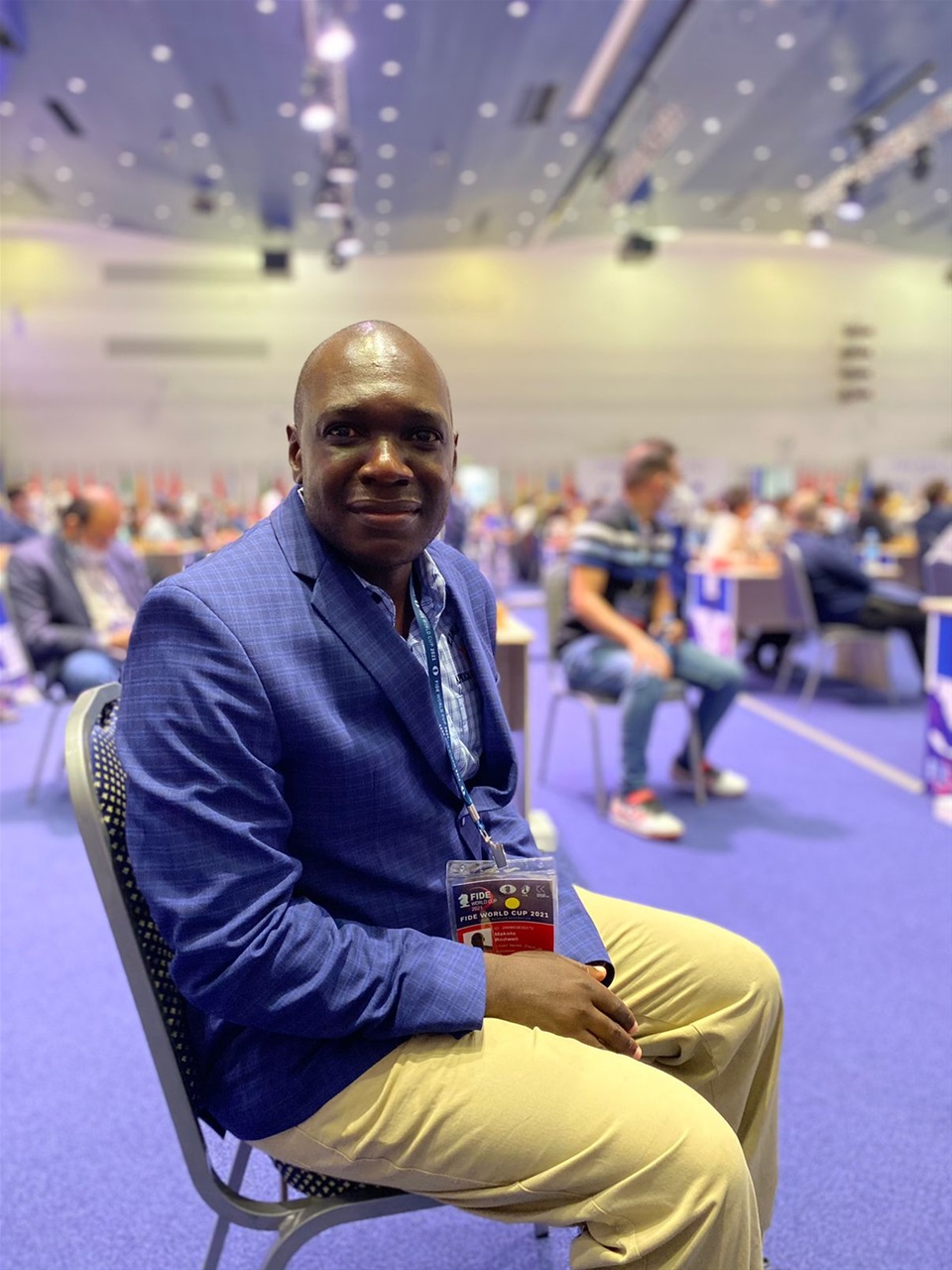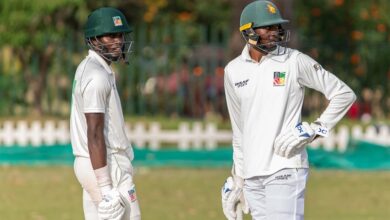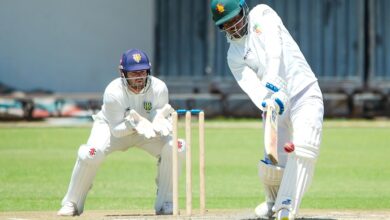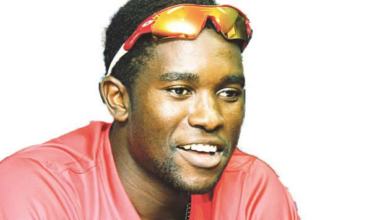
ZIMBABWE world cup representative International Master (IM) Rodwell Makoto was allegedly ‘abandoned’ by the national federation at his hour of need.
The Zimbabwe Chess Federation (ZCF) only paid for Makoto’s visa application fees and had to go out of his way to look for funding in his quest to raise the Zimbabwean flag high on the world stage.
IM Makoto, “Kotov”, as he is affectionately known in chess circles, was selected to represent the country at the Chess World Cup in Sochi, Russia.
As is the norm the world over, any sportsperson selected to represent their country at an international event like the Olympics or World Championships is considered an elite athlete and enjoys the privilege of the package.
The governing body of the sport represented by the athlete naturally assumes the responsibility and ensures that the athlete’s training preparation is up to standards and the sportsperson arrives at the competition venue safely.
Makoto is the country’s second chess player after IM Robert Gwaze to compete at the prestigious global showcase.
The 2013 second best Sportsperson Of The Year, unlike Gwaze, had to foot the bulk of expenses by himself.
“They (ZCF) only managed to contribute about a sixth of what was required for me to travel to Russia. The money I got from them only managed to cover the visa fees and nothing else,” lamented Makoto in an exclusive interview with EnterSportNews.
“Maybe they believe that to be chosen to represent the country is already a privilege on its own, but I worked hard to be where I am right now.”
The biggest mystery is why the Collin Tongoona led ZCF failed to provide enough funds to send one chess player to Russia. ZCF knew about the World Cup well ahead of time.
Makoto was paired against 27-year-old Belarusian Grandmaster (GM) Vladislav Kovalev. GM Kovalev is a chess heavyweight who has many prestigious accolades under his belt.
The 33-year-old International Master was forced to take time off his training schedule to look for money to fund his trip to the chess World Cup. At this point, it was clear that the five-time national chess champion’s hopes of proceeding to the next round were almost non-existent.
“When I realised that ZCF wasn’t going to help me, I turned to friends and fellows players for help,” said Makoto.
“I was fortunate that they came through for me and was able to raise the airfare, and at that point, I knew I was only going to the World Cup to learn.”
Dealing with problems of that magnitude reminded Makoto of what was important, and posing for photos at OR Tambo International Airport departure terminal was not a priority.
“I was under so much pressure. I collected my visa, Covid-19 test results and air ticket on the day of departure. The ZCF administrators made no attempt to assist me further,” he said.
“What was funny was that amid the confusion, one of the administrators insisted on a photo of me at the airport. The timing wasn’t just right. I had a World Cup to play and a Grandmaster to deal with.”
As he battled alone after being ‘abandoned’ by the association, of all the reasons why Makoto was probably not going to make it to the next round, food was definitely not going to be one of them. But there he was, miles away from home, starving for all his patronage.
As Kotov narrates his ordeal, it feels like a tragic movie where the main actor will eventually die no matter what happens.
When Kotov arrived in Sochi, he had run out of cash. The hotel he had secured could only provide breakfast.
“This is something that I wasn’t expecting. I never knew I would go half hungry, and I immediately contacted the ZCF Secretary-General begging for money from the federation,” he narrated his ordeal.
“I did not get the response immediately. Only to receive a text message later informing me that the federation didn’t have money to help me.”
Desperate times require desperate measures; Makoto devised a plan that helped him survive the hunger onslaught for the duration of his stay in Sochi. He had to put aside part of his breakfast to eat in the evening as supper.
“I needed the energy to make it through the next day, and I decided to keep some of my breakfast food so that I could eat it as supper,” he added.
Makoto’s opponent did not make it easier for him either. In the first round, playing black pieces, after 29 moves, the Zimbabwean Chessmaster found himself in an irredeemable position and resigned, thus ceding the point to the Belarusian.
In the second game, Kotov’s last attempt to proceed to the second round went down in flames when it was met with an all-out assault from GM Kovalev.
The former national champion lost both games and was knocked out of the tournament. It was time to return home.
For those familiar with South African-based chess player, both games did not depict his style of play. Makoto is known to be a resilient player who does not give up without a fight.
IM Makoto’s impressive track record has taught many aspiring local chess players that winning isn’t just everything. It’s the only thing. But something was not right about his performance this time.
However, he attributed his poor performance to a lack of over the board tournament play for more than a year.
“I enjoyed playing at World Cup, but I wasn’t in the zone. I last played over the board chess in 2019 at the Zonals in Madagascar, where I defeated a Grandmaster,” he said. “I could have fought harder if I was in the same form I was in 2019.”
Who could argue with the fact that Makoto did his best under such adverse circumstances?
There is probably nothing ZCF could have done to help Makoto progress to the next round but would have made his trip and learning experience pleasant.
Some have suggested that Gwaze or US-based IM Farai Mandizha would have done a better job.
Gwaze, who continues a slow fade from the picture, was not the right fighter for the job. By default, Mandizha could have been the favourite due to his superior FIDE Elo rating. However, the available facts that support Makoto as the best nominee could have pricked Mandizha’s balloon early in the selection process.
Makoto was the key player at the Batumi Chess Olympiad. This tournament propelled Zimbabwe into the top 100, which resulted in the country qualifying to send a player to the chess World Cup.
When contacted for comments regarding Makoto’s trip to Russia, ZCF Secretary-General Todd Mapingire could neither confirm nor deny the facts.
This episode will be a learning moment, if not a teaching moment, for chess administrators and chess players.
It may be asking for too much for ZCF to administer chess in the same way governing bodies of neighbours South Africa or Zambia do, but it’s not wrong to aspire to run the game along the same lines.
It starts by adequately funding the sole country’s representative at a World Cup, not just wanting photo opportunities without covering basic things like food.
A World Cup was an opportunity to tell the Zimbabwean chess narrative, create synergies based on a strong showing in the tournament. But that opportunity was missed due to shoddy preparations and an inept administration.
Makoto came back home empty-handed through no fault of his own. At this rate, it’s not surprising to see local chess sink into oblivion; it’s a ship that appears to have no captain to navigate it to the shore.






